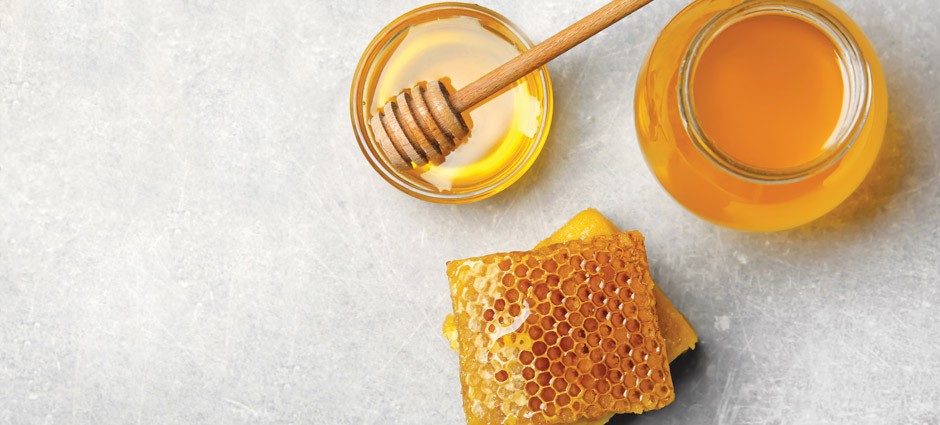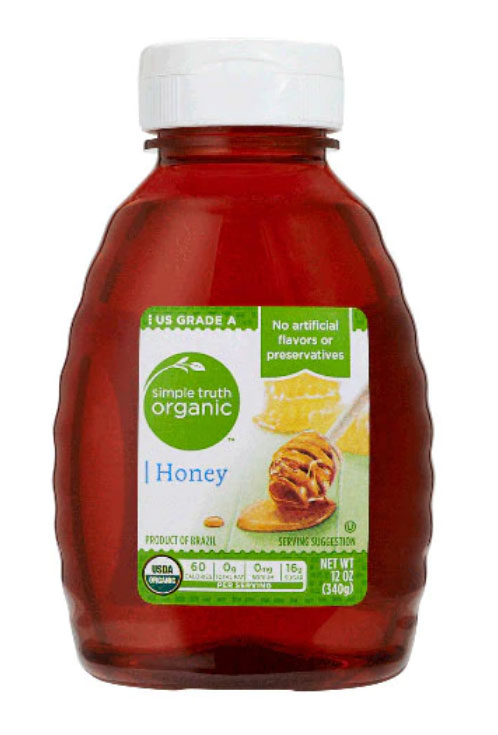Blueberry, orange blossom, wildflower, clover, mesquite, even avocado blossom: Did you know that these are natural flavors of honey? Across the country, you can find some type of local or regional honey unique to the area, with palate-pleasing flavors derived from a vast range of blossom-bearing trees, shrubs, flowers or herbs. Honeybees, attracted to blossoms, collect the nectar and buzz back to the hive where the honey-making business occurs.
So Many Flavors
According to the National Honey Board, more than 300 unique types of honey are available in the U.S. alone, each originating from a different floral source.
“You always get a taste of place with honey,” says Tony Landretti, CEO of Local Hive, which sources from producers across the nation. “For example, honey from Colorado is predominantly alfalfa, clover and wildflower. Southern California honey has a bit of orange blossom. In Florida, the honey may have some Brazilian pepper or tupelo flavors.”
This golden sweetener comes in a range of forms, from liquid and honeycomb to whipped and crystalized. Swirl a spoonful of southern acacia gold into tea, slather a layer of whipped mountain wildflower onto your toast, or add a dollop of fruity Midwestern berry to granola or yogurt.
Try: Simple Truth® Organic Honey
Use as a natural sweetener for cooking, baking or beverages. This honey is shelf-stable, gluten-free and contains no artificial flavors or preservatives.
Filtered vs. Raw and Unfiltered
Filtered honey is mostly clear and smooth. The natural product is heated, and then cooled quickly. This prevents granulation but also removes healthful natural pollens and enzymes.
Unfiltered honey stays in the raw state, the nutrients intact and not tampered with, maintaining all enzymes, antioxidants, amino acids, vitamins and minerals.
Health Benefits
It’s no secret that this luscious liquid has tempted sweet lovers for centuries. According to Dr. Ron Fessenden, author of five books on honey, including The New Honey Revolution (Xulon, 2014), honey has several health benefits that may surprise you.
Regulates and controls blood sugar.
“This seems counterintuitive, because honey is a sugar,” says Fessenden. “But honey has an equal ratio of fructose and glucose, plus about 180 additional compounds compared with sucrose or high-fructose corn syrup. This combination modulates blood sugar swings by facilitating the uptake of glucose in the liver and the rapid conversion of glucose to glycogen to fuel your brain and body.”
Promotes sleep.
“You need energy to sleep, and the tank that fuels your brain while you sleep is the liver,” says Fessenden. He explains that consuming honey before bed restocks the liver with glycogen for up to eight hours, so your brain has fuel for sleep through the night. When the fuel runs out, your brain “triggers” the need for more, which wakes you up. Fessenden recommends consuming 1 to 2 Tbsp in some warm water or tea.
Swap out sugar.
Exchange honey for granulated sugar in recipes. Nutrition consultant Bonnie Taub-Dix, R.D.N., suggests substituting honey for up to half the sugar called for in a recipe. The honey flavor can enhance or balance flavors of baked goods, as well as provide moisture.



